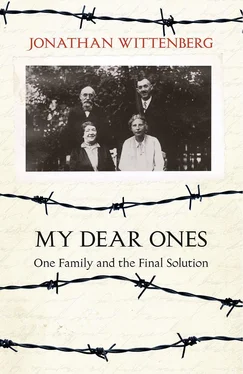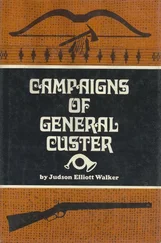My father’s last remaining sibling, Hella, died nine months after Steffi, just before the carnival festival of Purim. She too was buried on the Mount of Olives, close to her sisters. I went to Jerusalem for the funeral, then hurried home to be with my father during the shivah , the seven days of prescribed mourning. He was suffering from an unspecified illness associated with an autoimmune condition and had been growing progressively weaker for several years. But, as all the family agreed, it was the news of Hella’s death which destroyed his will to live.
Before I left Israel, my cousin Michal and I met at the flat in Jerusalem where the family had lived since the end of the 1930s to go through their remaining possessions. It was the close of an era, especially for my cousin, to whom that apartment, on the first floor of 29 Rechov Ramban, the main route through the centre of the Rechavia district where so many German Jews had settled, had been home from her earliest childhood.
I too had strong associations with that apartment, where I had stayed many times on visits to Israel. There was the bookshelf with the old prayer books from Germany, most of which are now in my own home in London; here in the dining room hung the portrait of Rabbi Yacob Ettlinger, known after his chief work as the Aruch LaNer; outside on the balcony was a pile of old suitcases. As I remember, the case we opened that afternoon was one of those large wood-ribbed travelling trunks that used to be fashionable in the days when railway stations still had porters. Inside was a smaller suitcase in which we found an inauspicious-looking off-white linen bag. In it was a bundle of old papers, letters, bills and documents. In another package were notebooks written in a small, tidy hand. A quick examination showed that they were commentaries to verses from the Bible and jottings for lectures, presumably by my great-grandfather Rabbi Jacob Freimann.
But it was the letters that captured my curiosity. I picked up random envelopes and began to unfold the delicate sheets they contained. A brief glance showed that they were mostly written in German; the paper was thin and time had turned the ink of the addresses on the envelopes from blue to fading turquoise. It was the dates which caught my attention: June 1938; November 1938; March 1939. I began to read. Much of the handwriting eluded my first, hasty efforts to decipher it, but some of the letters were readily legible and a few were typed. I sat for several minutes absorbed and oblivious.
17 June 1938
Dear Mama,
Hopefully the parcel arrived safely. This Saturday is going to be sad for you … What’s happening about your coming to visit us, dear Mama? Have you still not received any information?
The sender was Sophie, my father’s aunt. Scarcely a month later she wrote again:
11 July 1938
Dearest Mama,
The weather has become so nice and cool that I’m going to send off a small box tomorrow. It’ll hopefully be a duck and a chicken, and I’ll pack the gaps with Omega and flour.
What, I wondered, was Omega, and why was her eldest daughter sending poultry to her mother through the post?
There was a list several pages long in pale black ink; the letters were slightly blurred around the edges indicating that this was probably a second or third copy, made by inserting a sheet of carbon paper between the pages. Every conceivable household object was itemised: one clock, twelve knives, twelve shirts, two belts. No doubt the top version had been sent elsewhere, or handed in at some office to satisfy its tedious bureaucratic requirements.
So far all the letters were from 1938. But then I drew an equally thin but larger sheet of writing paper out of its envelope; it was dated 10 January 1947:
Dear Frau Ella,
I received your letter of the 14 September at the end of November. I beg you not to be angry that I’m only answering it today … Your dear mother wrote the following words: in spite of everything my faith in God remains unshakeable. These words accompanied me through the long years of persecution and bombing, when more than once our life hung by a silken thread, and gave me the strength to bear it all and come through.
Ella was my grandmother; this letter had been posted in Berlin to her Jerusalem address. But who was the sender, Charlotte Tuch? This was not a name I had ever heard mentioned before. And what relationship did she bear to my great-grandmother that she should be aware of her innermost thoughts before she died?
‘If it’s all right with you, I’d like to keep these,’ I half asked, half told my cousin as I returned the bundle to its off-white bag. I did not realise then the depth of the journey on which they would lead me.
I took the bag back with me to London, where we were all absorbed in caring for my father during his final days. I remember asking him about his aunt Sophie shortly before he entered that domain in which it was no longer possible to elicit the kind of information which is dependent on a practical and sequential awareness of the affairs of this world. ‘She came to visit us in Palestine in 1937,’ he said. ‘We told her not to go back to Europe but she wouldn’t listen. Her husband was a Czech nationalist; he believed they would be able to fight the Germans off. They were very wealthy in Czechoslovakia. “It isn’t safe there; stay here with us,” we told her. She wouldn’t hear of it.’
That was the last time I was able to ask my father about such matters, or about anything else.
It was the following year, on the night of the fast of Tishah Be’Av, next to the light of the memorial candle and in the presence of the list of names of the martyred members of the family, which my father had enjoined me to place there, that I began to organise and file the papers I had found in that trunk. Now at last I could begin to study them.
9 November 1938
With reference to our telephone conversation we politely wish to inform you that, due to the small number of certificates made available by the Mandate Government, it will not be possible for the foreseeable future – at least according to current schedules – for you to obtain a Pensioner’s Certificate to emigrate to Palestine.
We ask you to take due note of this information and remain, respectfully, yours
I’ve tried to imagine to myself the morning when my great- grandmother, Regina Freimann, received that letter. She would probably have been alone when the post was delivered. Glancing through it, she would at once have noticed the sender’s address on the envelope and realised with a quiver of anxiety that this was the notification for which she had so urgently been waiting. All the family, but most especially her son Alfred, who had done so much to encourage her to submit the application, would be concerned to know the outcome.
The letter would have reached her at her relatively new address on the Güntzelstrasse in the Berlin district of Wilmersdorf; it was not long before then that she’d had to leave her previous home in the beautiful Oranienburgerstrasse, a few houses down from the magnificent synagogue which, with its gold cupola, dominated the street. Probably that gracious flat had come with the position; as Rav and Av Bet Din , rabbi and head of the rabbinical court, her husband Jacob Freimann would have been looked after well by the community. But some months after his death his widow would have had to vacate the home they had shared together for close to ten productive but challenging years since they had come here from Poznań in 1928. To be selected to lead the rabbinical court in Berlin, a city with a large and influential Jewish community of over a hundred thousand souls, was a crowning mark of honour for a man whose Jewish legal and religious decisions were respected throughout Europe and beyond. No one could then have predicted how swiftly and insidiously National Socialism was gaining strength or how soon the fragile Weimar Republic would collapse.
Читать дальше












